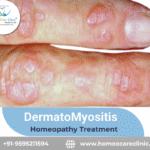Understanding Vocal Cord Paralysis
Vocal cord paralysis is a condition where one or both of the vocal cords lose movement due to nerve damage. The vocal cords, also known as vocal folds, are essential for speaking, breathing, and swallowing. When they do not move properly, it can cause serious problems with voice and airway functions.
This condition can happen to anyone, regardless of age or gender. It can be temporary or permanent, depending on the cause and the severity of nerve damage.
How Do Vocal Cords Work?
The vocal cords are two bands of muscle tissue in the larynx (voice box). They open when you breathe, close when you swallow, and vibrate to produce sound when you speak. These movements are controlled by the recurrent laryngeal nerve, a branch of the vagus nerve. If this nerve is damaged or compressed, the vocal cords can become weak or paralyzed.
Vocal Cord Paresis Causes
Several factors can cause vocal cord paralysis:
- Nerve Damage from Surgery – Surgeries involving the thyroid, neck, chest, or heart can accidentally injure the nerve controlling the vocal cords.
- Viral Infections – Viruses such as herpes, Epstein-Barr, or even the flu can cause inflammation and damage to the nerve.
- Stroke – A stroke can damage the part of the brain that controls vocal cord movement.
- Tumors or Growths – Cancerous or benign tumors in the neck, lung, thyroid, or brain can press on the nerve and cause paralysis.
- Neurological Disorders – Conditions like Parkinson’s disease, multiple sclerosis (MS), and myasthenia gravis can affect the muscles and nerves controlling the vocal cords.
- Trauma or Injury – Accidents, strangulation, or neck injuries can harm the nerve or larynx.
- Unknown Causes (Idiopathic) – In many cases, the exact reason for vocal cord paralysis is unknown.
Vocal Cord Paresis Symptoms
The symptoms vary depending on whether one (unilateral) or both (bilateral) vocal cords are affected. Common signs include:
- Hoarseness or weak voice
- Breathy speech (air escapes when talking)
- Difficulty swallowing (choking on food or liquids)
- Frequent coughing or throat clearing
- Shortness of breath (especially if both vocal cords are affected)
- Loss of voice (aphonia)
- Inability to produce high-pitched sounds
Unilateral vs. Bilateral Vocal Cord Paralysis
- Unilateral Vocal Cord Paralysis (one side affected): This is more common and leads to voice weakness, mild swallowing difficulty, and occasional breathing issues.
- Bilateral Vocal Cord Paralysis (both sides affected): This is more serious and can cause significant breathing problems, often requiring a tracheostomy to help with breathing.
Diagnosis of Vocal Cord Paralysis
Doctors use several tests to diagnose vocal cord paralysis:
- Laryngoscopy – A thin tube with a camera (laryngoscope) is inserted through the nose or mouth to examine vocal cord movement.
- Laryngeal Electromyography (EMG) – Measures nerve signals in the vocal cord muscles.
- CT Scan or MRI – Helps detect tumors, strokes, or nerve damage.
- Blood Tests – To check for infections or autoimmune disorders.
Treatment Options for Vocal Cord Paralysis
The treatment depends on the cause, severity, and duration of the condition. Options include:
1. Voice Therapy
If the paralysis is mild, voice therapy may help improve vocal strength. A speech therapist teaches exercises to:
- Strengthen the vocal cords
- Improve breath control
- Reduce strain while speaking
2. Medications
- Steroids to reduce inflammation (if the cause is infection or swelling)
- Botox injections to manage muscle spasms in the voice box
Homeopathic Treatment for Vocal Cord Paralysis
Homeopathy focuses on treating the root cause of vocal cord paralysis by using natural remedies that stimulate nerve healing and muscle function. Some commonly used remedies include:
- Causticum – Helps with weak, hoarse voice and difficulty speaking.
- Gelsemium – Used when paralysis is due to viral infections.
- Phosphorus – Beneficial for breathy voice and hoarseness.
- Arnica Montana – Useful if paralysis is due to injury or surgery.
- Lachesis – Helps in voice loss due to nerve damage.
Homeopathic treatment is personalized, so consulting a homeopathic doctor is essential to find the best remedy for individual cases.
Case Study: Recovery from Unilateral Vocal Cord Paralysis
Patient Profile:
- Name: Mr. Rajesh (name changed for privacy)
- Age: 45 years
- Condition: Unilateral Vocal Cord Paralysis after thyroid surgery
- Symptoms: Weak, breathy voice, difficulty swallowing liquids
Diagnosis & Treatment:
After a laryngoscopy confirmed unilateral vocal cord paralysis, he was advised to try voice therapy first. However, after three months, there was little improvement. The next step was homeopathic treatment.
Homeopathic Approach:
- Causticum 200C was prescribed due to his weak and hoarse voice.
- Gelsemium was given to strengthen nerve function.
- Dietary modifications and breathing exercises were also advised.
Outcome:
After two months, his voice became clearer and stronger. After six months, he could speak normally without effort. His swallowing difficulty also improved. His doctor confirmed better vocal cord function on follow-up examination.
Preventive Measures
Though not all cases of vocal cord paralysis can be prevented, some steps can reduce the risk:
- Avoid neck injuries (wear seat belts, use protective gear in sports)
- Treat viral infections early
- Manage neurological conditions properly
- Inform your surgeon about nerve safety concerns before surgery
- Quit smoking and reduce alcohol consumption (reduces risk of tumors)
- Maintain good vocal health (avoid excessive yelling, hydrate well)
Final Thoughts
Vocal cord paralysis can be distressing, affecting speech, breathing, and overall quality of life. However, with proper diagnosis and treatment—whether it’s voice therapy, surgery, or homeopathy—many patients can recover their voice and function.
If you or someone you know is experiencing hoarseness, weak voice, or breathing issues, seek medical attention as early as possible. Early intervention can make a significant difference in recovery.
Homeo Care Clinic offers a holistic approach to treating the disease. The remedies mentioned above can treat the underlying causes of the condition and offer relief from the discomfort. However, it is important to consult a qualified homeopathic practitioner for the correct dosage and duration of treatment. Homeo Care Clinic provides comprehensive care for various ailments, and offers customized treatment plans based on individual requirements.
To schedule an appointment or learn more about our treatment, please visit our website or give us a call +91 9595211594 our best homeopathy doctor will be here to help.
Follow us on Facebook, Twitter and Instagram for valuable insights into the world of homeopathy and holistic health.
Facebook – https://www.facebook.com/homeocareclinicpune
Instagram – https://www.instagram.com/homeocareclinic_in
Website – https://www.homeocareclinic.in
Success Stories of Patients – homeocareclinic.in/category/case-study
LinkedIn – linkedin.com/company/homeo-care-clinic
YouTube Patient Review – https://www.youtube.com/playlist?list=PL__SnPQCl4WLPFV7iJOdQxn4YaB6IkPHJ
Chat with a best homeopathic doctor privately
If you have any queries regarding your disease or any symptoms, click to send a What‘s App message. Our best homeopathy doctor will be happy to answer you.
Book an Appointment
If you want to visit our clinic, click to book an appointment.
Online treatment
If you are a busy professional, or you are living in a remote town or city, with no best homeopathic doctor near you, Click to start an online homeopathic treatment with the world’s exclusive, most experienced and best homeopathic clinic, managed by Dr. Vaseem Choudhary world-renowned homeopathic doctor expert






